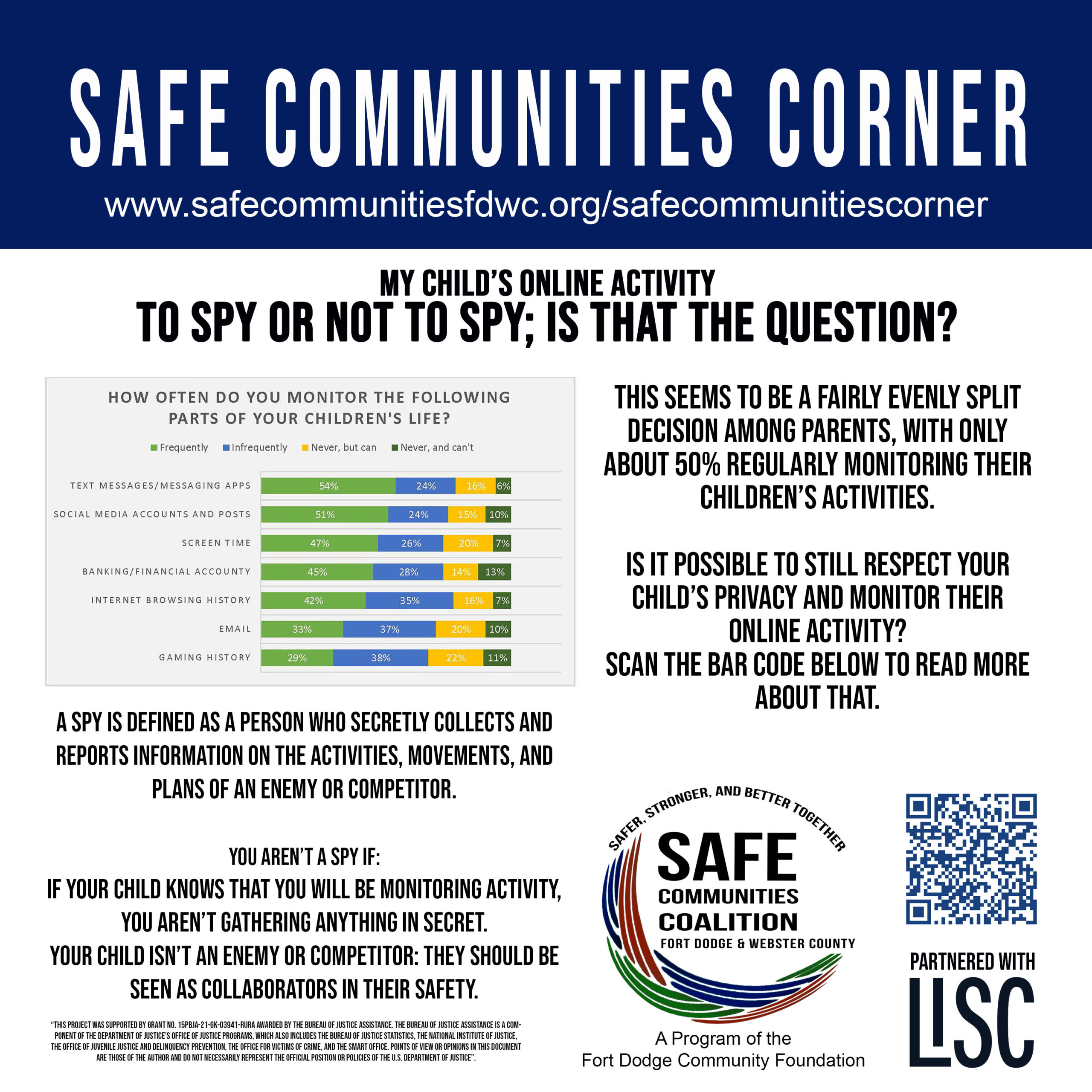When it comes to your children’s devices, to spy or not to spy? This is a question that can often invoke a very emotional response. There are passionate arguments on both sides.
You can probably guess where those of us here at the Safe Communities Coalition stand on this issue but we do understand why many parents feel as though they would rather respect their children’s private devices. I’d ask those parents to bear with me while I pose one question: is your child’s online activity truly private?
Now, if we were talking about something like a diary or even a telephone conversation with a longtime friend, by all means, respecting your child’s boundaries and allowing them the space they need to grow as an individual is important. Things like diaries and one on one conversations are limited interactions within the safe confines of home. Online devices pose a very different type of interaction.
Children and parents alike have fallen for the illusion of privacy when it comes to devices. While they may be using their phone/computer in the privacy of their homes or rooms, the fact is that what they are doing or saying could potentially be seen by hundreds of people. That device exposes them to the public in ways that far exceed what they can even imagine. When it comes to communication, searches, games, and a host of other online activities nothing is truly private.
The sad reality is that there are people out there who are ready and willing to take advantage of that exposure. It is estimated that there are 500,000 predators online each and every day. Children, by nature, over trust and over share, which is not a bad thing. However, it does mean that guidance becomes critical when it comes to their online activity. A child whose activity is unmonitored becomes easy prey for these predators. In fact, they actively search for these children. 89% of these predators are in chat rooms and instant messaging and they watch for and dig out conversation that might clue them into whether or not the child they are conversing with is supervised. Any game, app, or social media platform that has chat or messaging capabilities should be checked on a regular basis to make sure that your child isn’t giving any valuable information to strangers.
Here are a couple of links from the FBI with ways to protect your children:
https://www.fbi.gov/scams-and-safety/protecting-your-kids
Monitoring does not equal spying. What’s the difference? Method and intent. A spy gathers intel secretly. Healthy monitoring includes involving your child in the discussion about your expectation to be able to pick up that device (could be a phone, game system, or tablet) at any given moment and look through any app, game, message thread, etc. So long as your child knows that it could happen at any time there is nothing done in secret. A spy’s intent is to take down the enemy. Your enemy, in this case, is not your child. Is there an enemy? Of course there is…the predator. Join forces with your child and spy out the enemies on their devices together. Arm your child with the tools they need to be aware of the red flags.
It’s not just about whether or not you trust your child. When you get involved and watch what your child is doing on their devices, your responses to their reality is teaching them to trust you as well. When they learn to trust that you will handle a tough situation with a level head, they’ll be more likely to come to you for help if they’ve made a mistake when you weren’t watching. Realistically, that’s the end goal. To be able to step back as your child ages and know that they can identify their mistakes and trust that they’ll come to you when they need help rectifying those mistakes. Spies aren’t in the business of fostering good decision making and problem solving, parents are.




